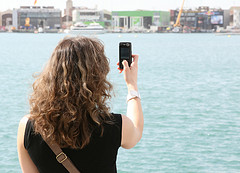 The answer to this is, of course, complicated by a number of factors. The topic of female travel has been specifically discussed recently by a few writers:
The answer to this is, of course, complicated by a number of factors. The topic of female travel has been specifically discussed recently by a few writers:
- The Gender Gap in Travel: Myths and Revelations by Seth Kugel
- Are Solo Female Travelers In Danger Or Empowered? by Rachel Ryan
As women travel solo for business and pleasure in girlfriend groups more often these days, it occurred to us it might be useful to explore the travel insurance needs of women travelers.
As Seth Kugel notes, “Traveling on a budget is clearly more difficult for women. The cheapest hotels, my bread and butter, are rarely the safest, whether because of their location or their weaker security or simply the creepiness of the other guests.†If a female traveler has spent a good deal of money – money she isn’t willing to throw away – on her travel plans, having adequate trip cancellation and trip interruption coverage is cheap peace of mind if she has to cancel a trip before it starts or abandon it after it starts.
Accidents and injuries can occur anywhere and anytime, so women travelers should be sure they have adequate medical and evacuation coverage. Medical coverage will provide payment or reimbursement for medical care received while traveling. Medical evacuation coverage will provide the coordination of and payment for medically necessary evacuation when you must be airlifted out of a bad situation to receive proper medical attention. Repatriation coverage, which is included in your evacuation benefits, will return your body home if you die on your trip.
Coverage for lost, stolen, or destroyed baggage can also help a woman replace her clothing and personal items – even the bag itself – even if her bag is stolen after it is retrieved from the luggage carousel at the airport, such as a hotel room break-in or theft from a taxi.
If a woman is traveling in an area where she may encounter civil uprisings or political action, having security evacuation coverage can help get her to safety.
If a woman is traveling with children, having coverage that ensures the safe return of her children is a good idea. If she is hospitalized, the travel insurance company will arrange and (in many cases) pay for her children to be returned home or to a relative for care while she is treated.
In our opinion, the dangers women face at home are essentially the same as those they face when traveling, so ignore the cat-calls from those passing by, firmly turn down unwanted advances, and ask for help when you need it.
